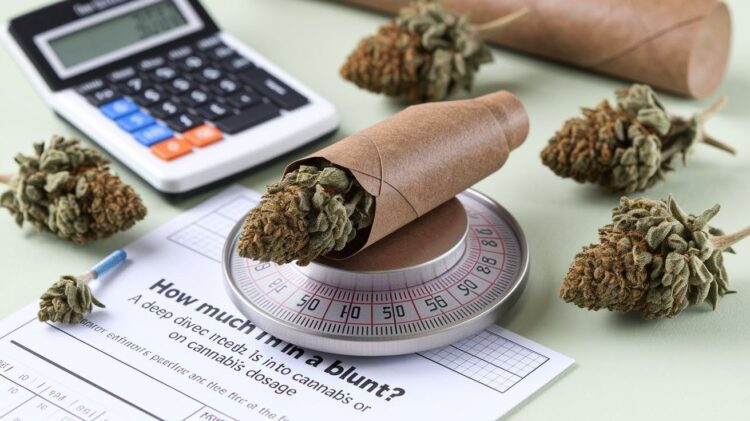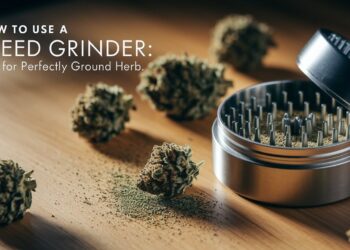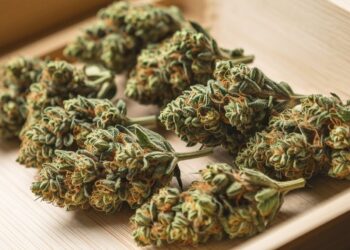Ever wondered exactly how much THC you’re getting in that blunt? You’re not alone. I’ve been researching cannabis dosage for years, and this question comes up constantly.
A blunt is cannabis rolled in a tobacco leaf wrap, different from joints or spliffs. Understanding THC content isn’t just curiosity it’s safety.
Too much THC can cause anxiety and paranoia. Not enough leaves you disappointed and reaching for more.
Here’s what makes this tricky: THC levels depend on strain potency, cannabis amount, rolling technique, and smoking method.
In this guide, I’ll show you simple math to calculate exact THC amounts in blunts. You’ll learn safe dosing, absorption rates, and common mistakes to avoid.
I’ve tested these methods personally and consulted lab data to give you accurate, trustworthy information. No guesswork, just reliable calculations.
By the end, you’ll dose blunts like a pro and stay safe while enjoying cannabis responsibly.
THC Content Calculation Methods
Calculate THC by multiplying cannabis weight in milligrams by THC percentage: 1 gram (1,000mg) × 20% THC = 200mg total THC.
1. Basic THC Math Formula
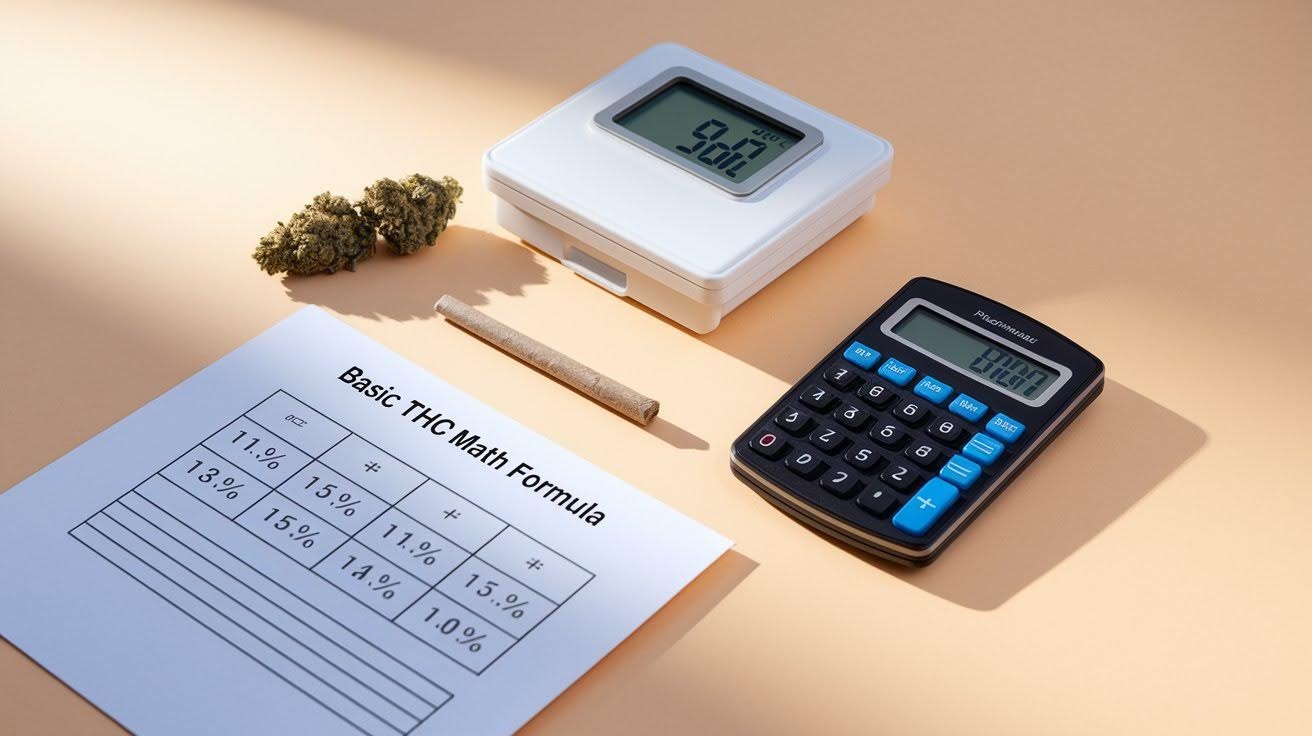
The math is easier than you think. I’ll show you the simple formula that works every time.
Here’s the basic calculation: Weight in milligrams × THC percentage = Total THC mg
Remember to convert grams to milligrams first. One gram equals 1,000 milligrams. This trips up a lot of people.
Let me walk you through real examples. A 1-gram blunt with 20% THC flower contains 1,000mg × 0.20 = 200mg THC.
Here’s another one. A 2-gram blunt with 25% THC gives you 2,000mg × 0.25 = 500mg THC. That’s a serious dose.
A 1.5-gram blunt with 15% THC calculates to 1,500mg × 0.15 = 225mg THC.
Write this formula down: Cannabis weight in mg × THC decimal = Total THC mg.
I use this calculation before every session. It keeps me safe and prevents overconsumption. No guessing, no surprises.
Your phone calculator works perfectly for this. Takes 30 seconds and could save you from a bad experience.
2. Tools for Accurate Measurement
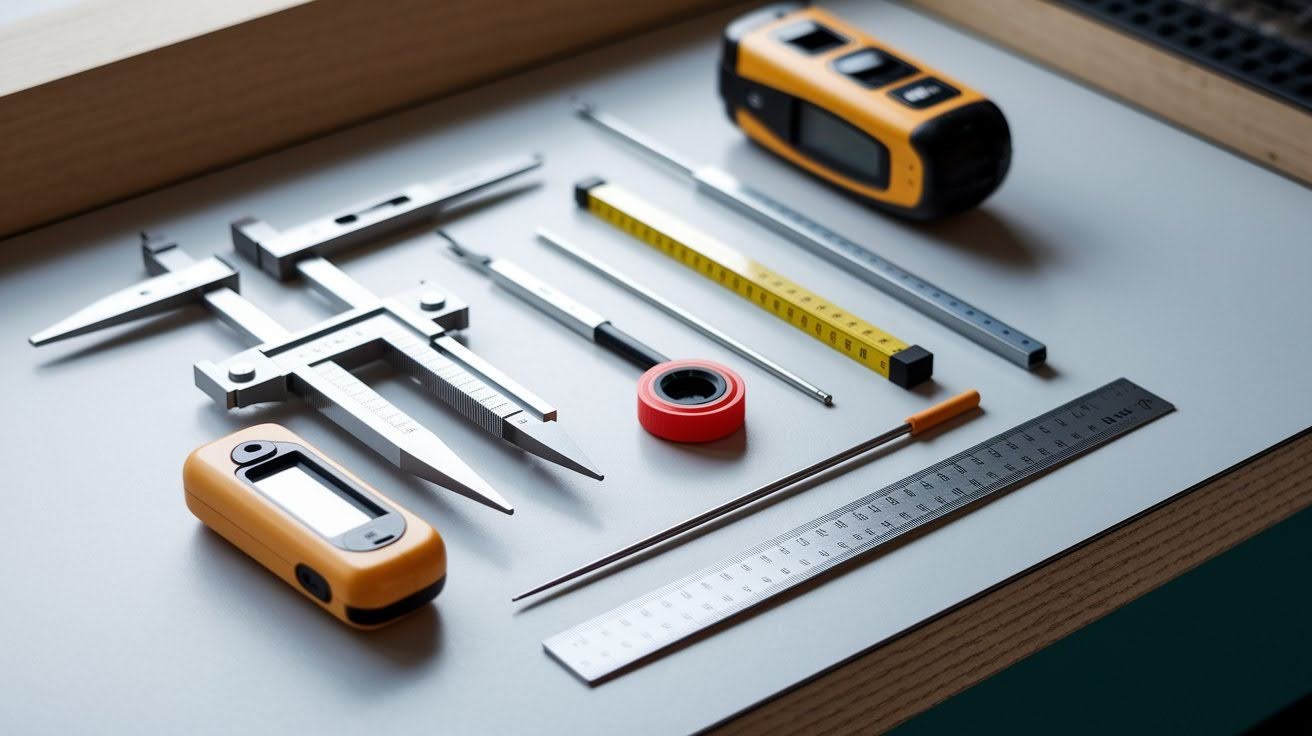
You need the right tools to get accurate THC calculations. I learned this after too many guessing games went wrong.
A kitchen scale is your best friend. Get one that measures to 0.1 grams. Digital scales under $20 work perfectly for cannabis weighing.
Your phone calculator handles the math instantly. I keep the THC formula saved in my notes app for quick reference.
Strain packaging tells you everything. Look for the THC percentage printed clearly on labels. Lab results show exact potency numbers you can trust.
QR codes link to detailed testing data. Scan them to see cannabinoid profiles, pesticide tests, and harvest dates. This information matters for safety.
Some packages show ranges like “18-22% THC.” Use the middle number for calculations. It’s more accurate than guessing high or low.
Estimating versus exact measurements makes a huge difference. Eyeballing cannabis weight can be off by 50% or more. I’ve seen people think they had a gram when it was 1.8 grams.
Invest in proper tools. Your safety and experience depend on knowing exactly what you’re consuming.
3. Real-World Variables Affecting Calculations

Your perfect THC calculation isn’t the whole story. Real-world factors change how much you get.
The moisture content of the flower affects everything. Wet cannabis weighs more but contains less THC per gram. Dry flower packs more potency into less weight.
Rolling technique variations impact your results, too. I’ve rolled the same strain tight and loose. The loose roll burned faster and wasted more smoke.
Burn rate differences matter more than you think. Fast-burning blunts lose THC to the air. Slow burns give you more time to inhale the good stuff.
Incomplete combustion factors steal your THC. Cannabis that doesn’t burn completely wastes active compounds. Poor airflow causes this problem.
Side-stream smoke losses are huge. That smoke drifting off your blunt? It’s carrying away 40-50% of your THC. You’re watching money burn.
Heat destroys about 30% of THC during combustion. Your 200mg blunt might only deliver 40-60mg to your lungs.
These variables explain why calculations don’t always match reality. Use the math as a starting point, then adjust based on your experience.
Factors Affecting THC Potency in Blunts
Cannabis potency depends on strain genetics, growing conditions, harvest timing, curing methods, age, and storage-fresh flower always delivers higher THC than old, degraded cannabis.
1. Cannabis-Related Factors
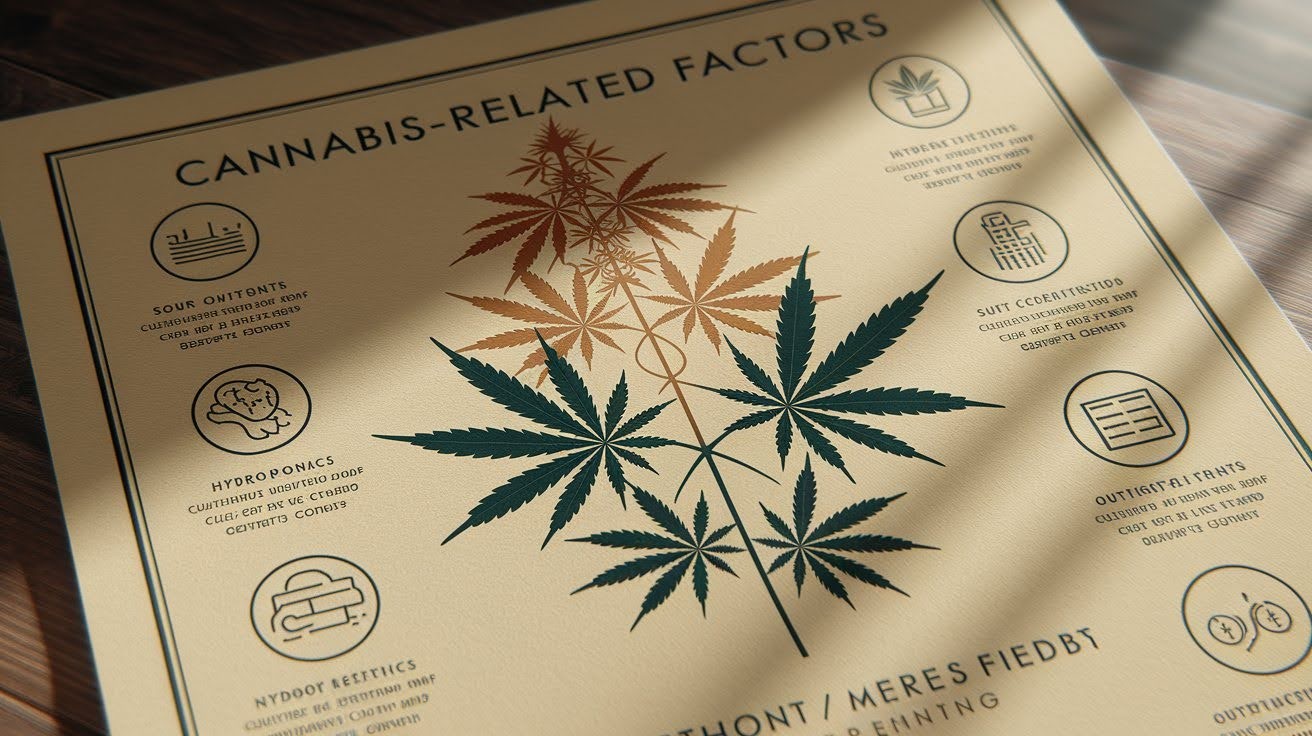
The cannabis itself determines your blunt’s potency. Multiple factors affect THC levels before you even start rolling.
Strain selection and genetics set the foundation. Some strains naturally produce higher THC than others. Genetics is like DNA for potential.
Growing conditions and harvest timing change everything. Plants harvested too early have lower THC. Too late, and THC converts to less potent compounds.
Curing and storage methods matter enormously. Properly cured cannabis maintains potency for months. Poor storage destroys THC through heat, light, and moisture exposure.
Age and degradation of the flower reduce its strength over time. I’ve tested a year-old cannabis that has lost 30% of its original potency. Fresh flower always hits harder.
Lab testing accuracy and variations can surprise you. Different labs sometimes report different numbers for the same batch. Results can vary by 2-3% between facilities.
Some growers cherry-pick their best buds for testing. The flower you buy might be weaker than the tested sample.
Check harvest and testing dates on packaging. Fresh cannabis gives you more accurate potency and better effects. Old, degraded flower wastes your money.
2. Rolling and Preparation Factors
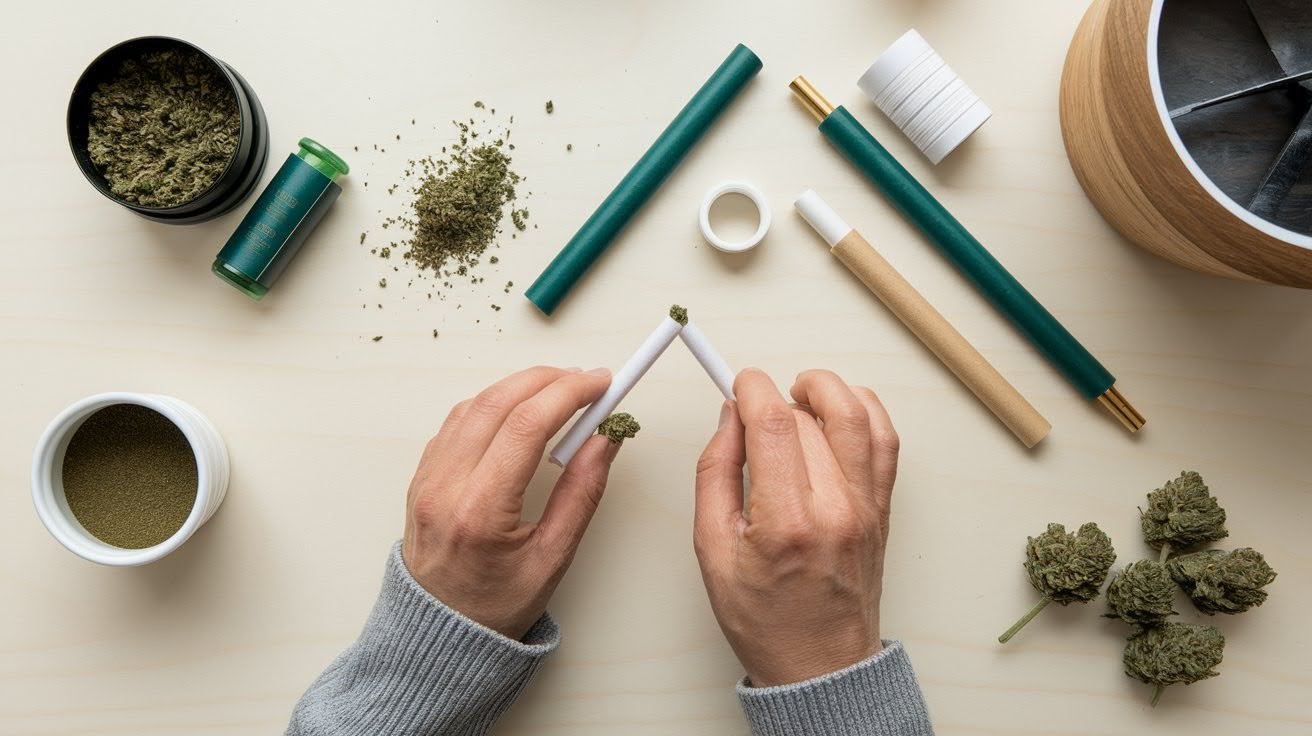
How you prepare cannabis affects THC delivery. I’ve learned this through years of rolling in different ways.
Fine grind promotes even burning across your entire blunt. Coarse grind burns unevenly, wasting THC in unburned chunks. More surface area means better cannabinoid release.
Packing density matters enormously. Tight packing slows burn and restricts airflow. Loose packing burns fast and wastes smoke through side-stream losses.
I pack firm but not tight. Test airflow by gently inhaling through the unlit blunt. Good airflow feels smooth and steady. Too much resistance means repack loser. No resistance means pack tighter.
Finding the optimal balance takes practice. Perfect packing maximizes your THC intake and creates a consistent smoking experience throughout your session.
3. Rolling Techniques and Shapes
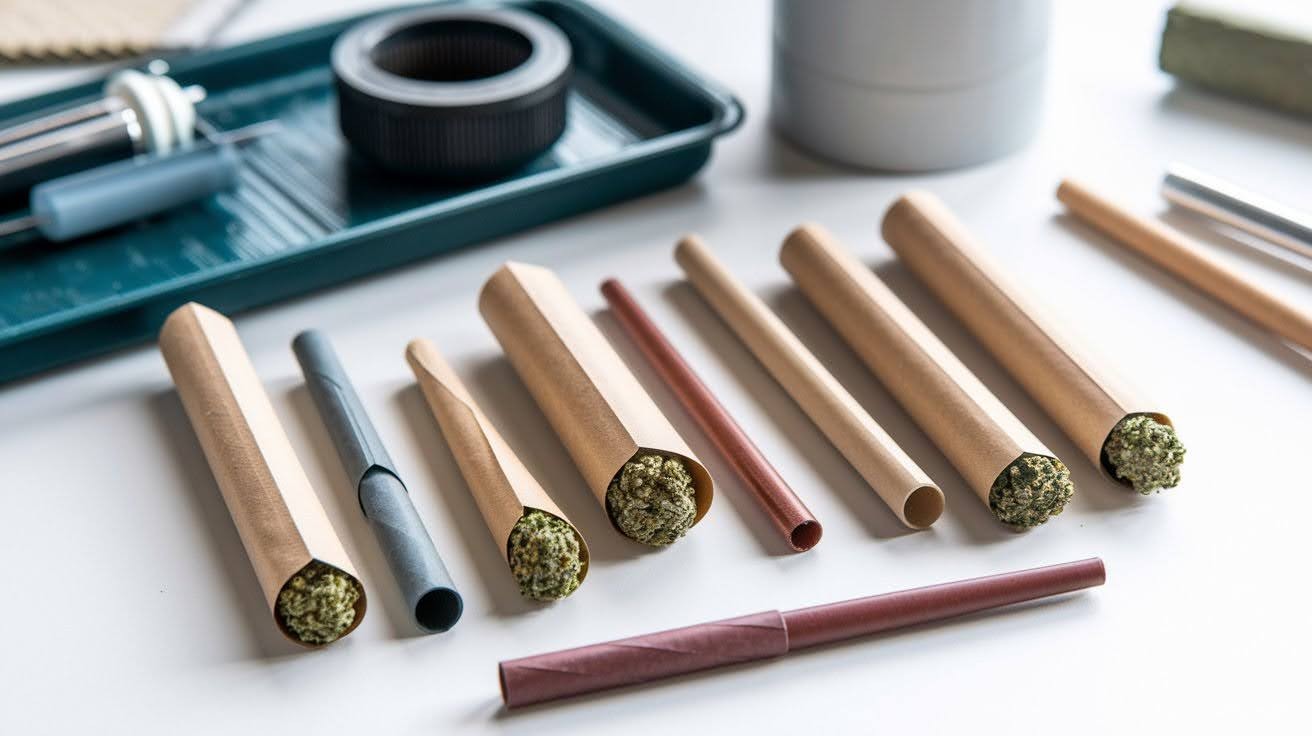
The shape of your blunt changes how it burns. I’ve tested every rolling technique to find what works best.
Baseball bat vs. straight cylinder shapes affect your smoking experience. Baseball bats start thin and get thicker. This creates uneven burning patterns.
Straight cylinders burn more consistently. Same width means even heat distribution throughout your session.
The spiral tuck method works great for beginners. Roll the wrap around the cannabis in one smooth motion. Keep tension consistent as you tuck and roll.
Cigar-style wrapping technique takes more skill. You wrap like a premium cigar, creating tight seals at both ends. This method burns more slowly and wastes less smoke.
Airflow testing before lighting saves you frustration. Gently inhale through the unlit blunt. Good airflow feels smooth without resistance.
Too much resistance means reroll loser. No resistance means your blunt will burn too fast.
Impact on burn rate and THC delivery is significant. Well-rolled blunts burn evenly and deliver consistent THC. Poor rolling wastes cannabis and creates hot spots that destroy cannabinoids.
Practice makes perfect with rolling techniques.
THC Potency Ranges in Modern Cannabis
THC strains range from 10-15% (beginner-friendly) to 40-45% (ultra-premium), so always check packaging and start with lower percentages to avoid overconsumption.
1. Strain Potency Categories
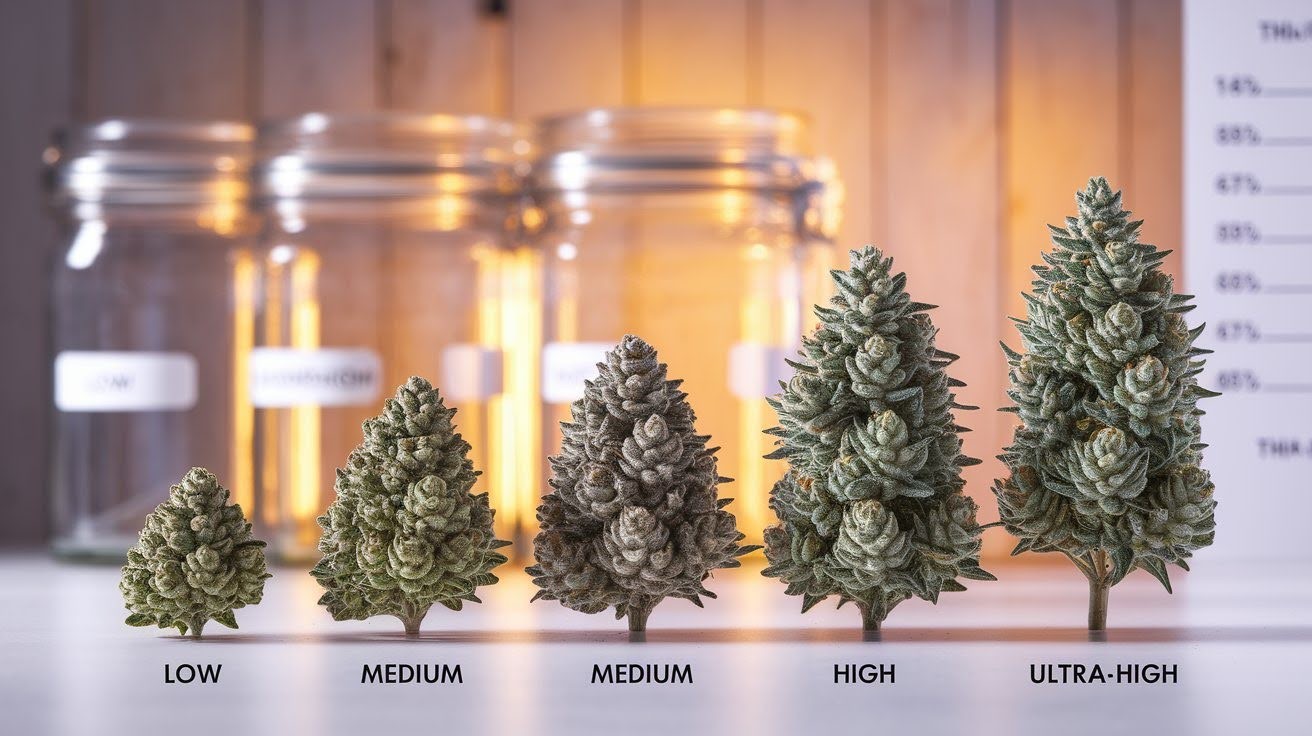
Not all cannabis is created equal. THC levels vary dramatically between strains.
Low THC strains sit between 10-15%. Perfect for beginners or daytime use without overwhelming effects.
Moderate THC strains range from 15-20%. This is the sweet spot for most casual users. Strong enough to feel good, mild enough to stay functional.
High THC strains pack 20-25% potency. These hit hard and fast. Experienced users love them, but newcomers should be careful.
Premium strains push 25-30% or higher. Ultra-premium products like Sluggers blunts contain 40-45% THC. These are concentration-level potencies.
Know your limits. Start low and work up. Check the packaging for exact percentages before rolling.
2. Average THC Content in Blunts
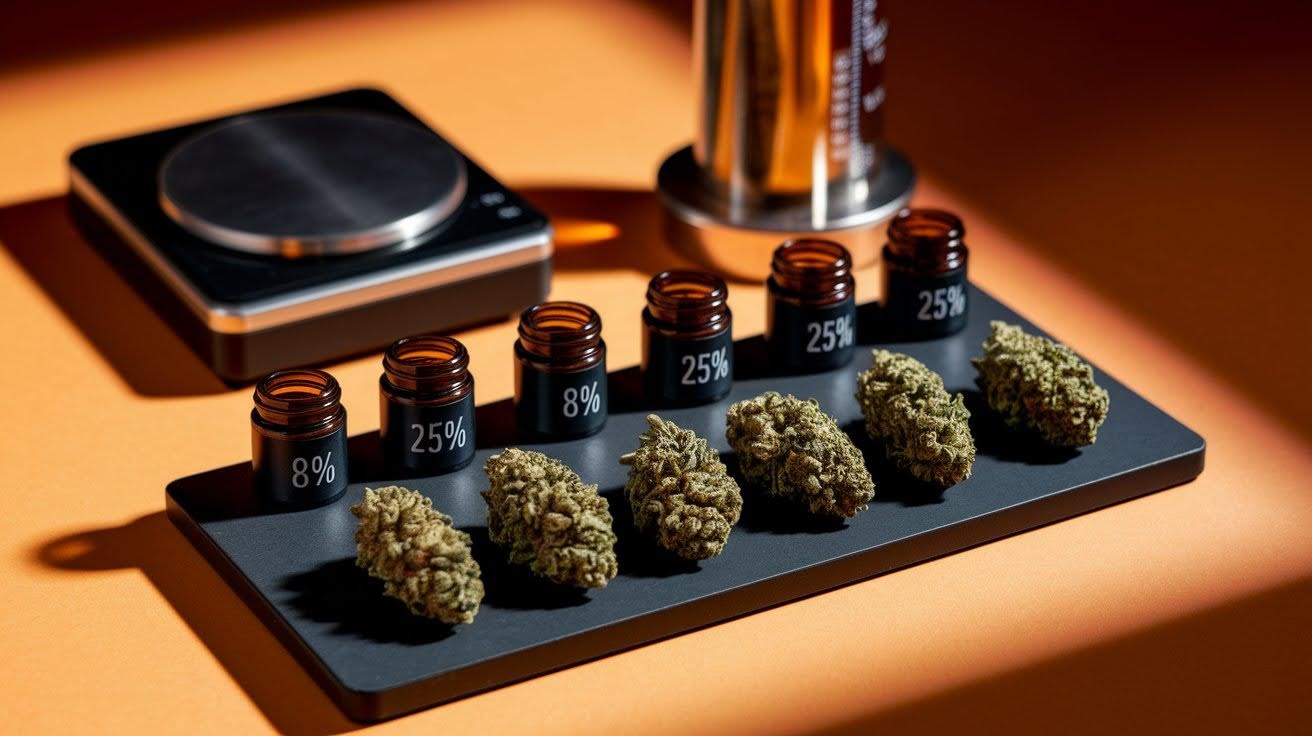
Most blunts contain 200-400mg of THC. This assumes you’re using typical 20% THC flower in a standard 1-2 gram blunt.
I’ve calculated hundreds of these over the years. The math is simple, but the variables change everything.
Based on a 20% average THC flower, a 1-gram blunt gives you 200mg THC. A 1.5-gram blunt jumps to 300mg THC. A 2-gram blunt hits 400mg THC.
Location matters more than you think. California dispensaries often carry 25-30% strains as standard. Rural areas might max out at 15-18%.
Medical vs. recreational makes a difference, too. Medical dispensaries typically stock higher potency options for patients needing stronger relief.
Always check before you buy. Look for lab testing stickers on packaging. QR codes often link to detailed potency reports. Don’t trust street dealers about percentages. Get your cannabis from licensed sources with proper testing. Your safety depends on knowing exactly what you’re smoking.
Conclusion
So, how much THC is in a blunt? Now you know it depends on your cannabis weight, strain potency, and rolling technique. Most blunts contain 200-400mg of THC, but you’ll only absorb about 20-30% of that amount.
The simple formula works every time: cannabis weight in milligrams × THC percentage = total THC content. With proper measurement tools and fresh cannabis, you can calculate exact dosages and avoid uncomfortable experiences.
Remember to start low, especially with high-potency strains, and always test your airflow before lighting. Your safety and enjoyment matter most.
Ready to put this knowledge to work? Share your favorite rolling techniques in the comments below, or find our other cannabis guides for more dosing tips.
Stay informed, stay safe, and enjoy responsibly.
Frequently Asked Questions
How much THC is in a blunt?
Most blunts contain 200-400mg of THC, depending on cannabis weight and strain potency. A typical 1-gram blunt with 20% THC flower contains about 200mg THC. However, you only absorb 20-30% of this due to combustion losses and side-stream smoke.
How do I calculate THC content in my blunt?
Use this simple formula: cannabis weight in milligrams × THC percentage = total THC. For example, a 1.5-gram blunt (1,500mg) with 25% THC contains 375mg THC total. Always convert grams to milligrams first for accurate calculations.
Do blunts have more THC than joints?
Yes, blunts typically contain more THC because they hold more cannabis (1-2 grams vs. 0.3-0.75 grams for joints). Blunts also burn slower, providing extended THC exposure, though the tobacco wrap doesn’t increase THC content directly.
How much THC do I absorb from smoking a blunt?
You absorb only 20-30% of the THC in a blunt when smoking. About 40-50% is lost to side-stream smoke, and 30% is destroyed by combustion heat. A 200mg THC blunt delivers approximately 40-60mg to your body.
What factors affect THC potency in blunts?
Strain potency (10-45% THC), cannabis amount used, grind consistency, rolling technique, packing density, and burn rate all influence THC delivery. Fresh, properly stored cannabis and even burning maximize potency, while poor technique wastes THC through incomplete combustion.

